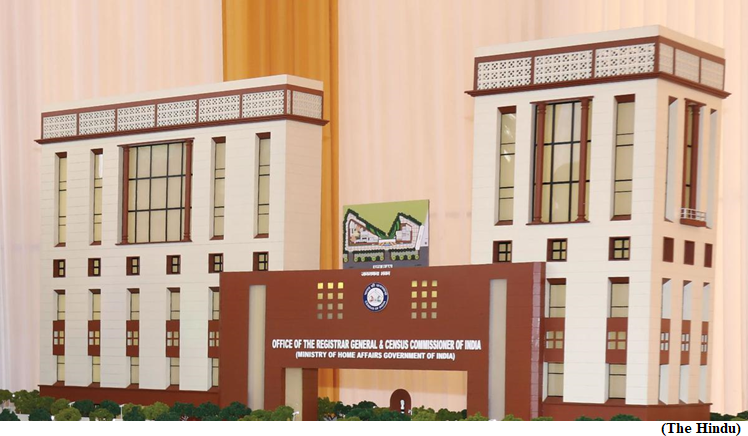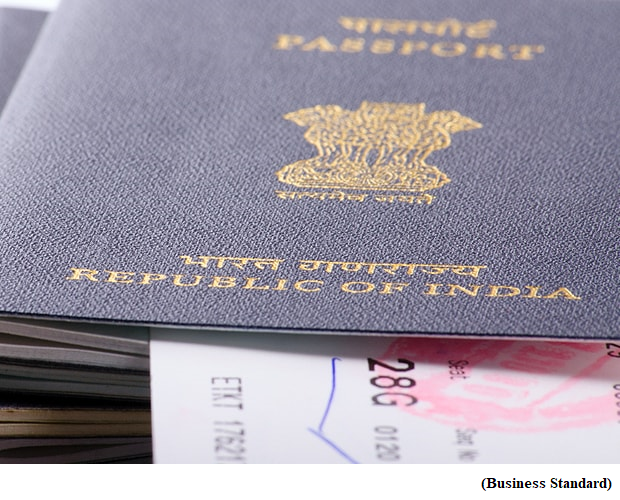Office of Registrar-General of India follows ‘obsolete’ criteria for scheduling of tribes (GS Paper 2, Governance)

Why in news?
- The Office of the Registrar-General of India (RGI) is following the set of criteria set out by the Lokur Committee nearly 60 years ago to define any new community as a Scheduled Tribe.
- The Office of the RGI’s nod is mandatory for the inclusion of any community in ST lists, as per the procedure for scheduling tribes.
Details:
- In response to a query under the Right to Information Act, 2005, the Office of the RGI said, “For criteria, report of the Advisory Committee on the revision of the lists of Scheduled Castes and Scheduled Tribes (Lokur Committee 1965) is consulted.”
- This comes even as the government, until December, 2017, insisted in Parliament that it was considering a proposal to change the criteria for scheduling of new communities as STs based on the report of an internal task force.
- The criteria set out by the Lokur Committee for defining a community as a tribe are: indications of primitive traits, distinctive culture, geographical isolation, shyness of contact with the community at large, backwardness.
Task Force:
- The government task force on Scheduling of Tribes constituted under the leadership of then Tribal Affairs Secretary, Hrusikesh Panda in February 2014, had concluded that these criteria “may have become obsolete considering the process of transition and acculturation”.
- It noted that terms like primitive and the requirement of primitivity to be a characteristic of Scheduled Tribe indicates a condescending attitude by outsiders.
- It also pointed out problems with the geographical isolation criterion, arguing that as infrastructure development continued across the country, “how can any community remain in isolation”?
Recommendations:
- The Task Force had recommended changes to the criteria in May and based on this, the Tribal Affairs Ministry had in June 2014 prepared a draft Cabinet note to overhaul the criteria and procedure for scheduling of new communities as STs.
- The new criteria under the government’s consideration included, “Socio-economic, including educational, backwardness, vis-a-vis, the rest of the population of the State; Historical geographical isolation which may or may not exist today; Distinct language/dialect; Presence of a core culture relating to life-cycle, marriage, songs, dance, paintings, folklore; Endogamy, or in case of exogamy, marital relationship primarily with other STs.”
Limitations of Lokur Committee criteria:
- Now, with the Office of the RGI saying it continues to follow the criteria set out by the Lokur Committee in 1965, the fate of the proposal to change the criteria hangs in the balance.
- The Office of the RGI has said that it relies on census publications, which go back to 1891, along with materials provided by the nodal Union ministry and State governments, and then decides whether a community can be categorised as ST based on the Lokur Committee criteria.
- The task force led by Mr. Panda had said that in addition to the Office of RGI not having adequate anthropologists and sociologists to take such decisions, it also lacked the data for it, noting that inconsistencies in census records dating that far back presented more problems for categorisation based on the Lokur Committee’s criteria.
- For instance, it noted that the 1891 census described tribes as people with a “tribal religion”; the 1901 and 1911 censuses described them as “tribal animists”; in 1921, they were called “hill and forest tribes”; in 1931, they were documented as “primitive tribes”; and were classified as “tribes” in 1941, before moving to the Constitutional term of “Scheduled Tribes” in 1951.
- The same task force had also recommended changes to the “cumbersome” procedure for scheduling of tribes followed since 1999, which it said along with the “obsolete” criteria was hindering over 40 communities from being included in ST lists across States.
What’s next?
- In November 2022, the Union government had put the proposal to change the procedure on hold and decided to continue with the existing one, which gives utmost primacy to the opinion of the Office of the RGI.
Cabinet approves Setting up of a national level multi-state cooperative seed society under Multi-State Cooperative Societies (MSCS) Act, 2002
(GS Paper 3, Economy)
Why in news?
- The Union Cabinet has approved a historic decision to set up and promote a national level multi-state seed cooperative society under Multi State Cooperative Societies (MSCS) Act, 2002.
 Act.png)
PACS to APEX:
- Primary to national level cooperatives societies including primary societies, district, state and national level federations and multi state cooperative societies can become its member.
- All these cooperatives will have their elected representatives in the Board of the society as per its bye-laws.
National level MSCS:
- The national level multi state seed cooperative society would act as an apex organization for production, procurement, processing, branding, labelling, packaging, storage, marketing and distribution of quality seeds; strategic research & development; and to develop a system for preservation and promotion of indigenous natural seeds; through various cooperative societies across the country with support from relevant ministries especially Ministry of Agriculture and Farmers Welfare, Indian Council for Agricultural Research (ICAR) and National Seed Corporation (NSC) through their schemes and agencies.
- The proposed society will help to increase the seed replacement rate, varietal replacement rate, ensuring the role of farmers in quality seed cultivation and seed variety trials, production and distribution of certified seeds with a single brand name, by utilizing the network of all levels of cooperatives.
Significance:
- The availability of quality seeds will help in increasing agricultural productivity in strengthening food security and also increasing the income of the farmers.
- The members will benefit both by realization of better prices by production of quality seeds, higher production of crops by use of High Yielding Variety (HYV)seeds and also by dividend distributed out of the surplus generated by the society.
- The seed cooperative society will involve all forms of cooperative structures and all other means to increase the SRR, VRR by ensuring the role of farmers in quality seed cultivation and seed variety trials, production and distribution of certified seeds with a single brand name.
Way Forward:
- Quality seeds production through this national level seed cooperative society will increase the agriculture production in the country thereby leading to more employment in the agriculture and cooperative sector; reducing the dependence on imported seeds and provide boost to rural economy, promoting “Make in India” and leading to Atmanirbhar Bharat.
Indian passport 85th most powerful in the world, slips two spots from 2022
(GS Paper 3, Economy)
Why in news?
- Recently, the Henley Passport Index was released.
- With visa-free entry in 59 countries, the Indian passport ranks 85th in the list of most powerful passports in the world.
- It has slipped two spots from the 83rd rank in 2022.

Key Highlights:
- Japan's passport continues to be the most powerful in the world.
- Japanese citizens are now able to visit an astonishing 193 destinations out of 227 around the world visa-free, while South Koreans and Singaporeans, whose countries are tied in 2nd place on the index, enjoy a visa-free/visa-on-arrival score of 192.
- Germany and Spain are joint 3rd, with visa-free access to 190 destinations worldwide.
- The UK and the US remain in 6th and 7th places, with scores of 187 and 186, respectively.
- Afghanistan's passport was the worst passport.
Key Observations:
- Just 6 per cent of passports worldwide give their holders visa-free access to more than 70 per cent of the global economy. And only 17 per cent of countries give their passport holders visa-free access to more than four-fifths of the world's 227 destinations.
- Despite having the world's fifth-largest economy: Indian passport holders can access just 59 destinations worldwide and only 6.7 per cent of global GDP, of which the country's own GDP accounts for around half.
- In 2023, the countries are opening up after three years of stagnation, and international travel is surging to a record level.
- International travel is surging to record levels, dozens of countries have launched nomad visa or golden visa schemes, and relocations are surging to take advantage of remote work opportunities, settle in friendly tax regimes, or adapt to the impact of climate change on property markets.
About Henley Index:
- Originally created by Dr. Christian H. Kaelin (chairman of Henley & Partners), the ranking is based on exclusive data from the International Air Transport Association (IATA), which maintains the world’s largest and most accurate database of travel information.
- It was launched in 2006 and includes 199 different passports.



 Act.png)
